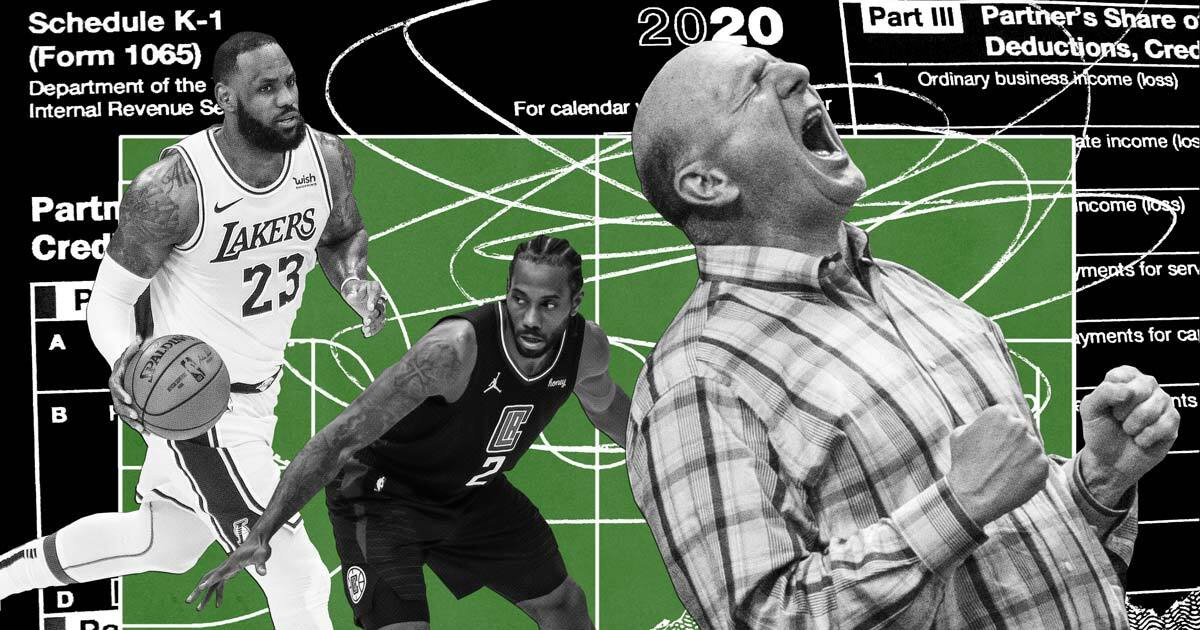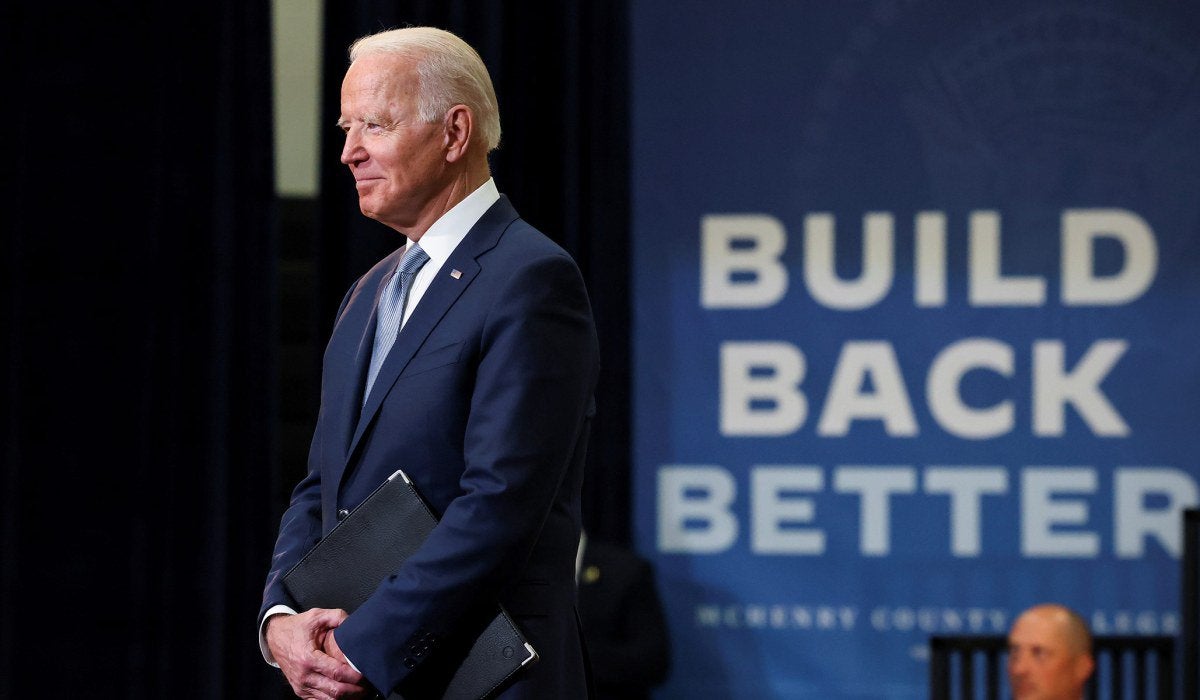MarxMadness [comrade/them]
- 27 Posts
- 1.6K Comments
- MarxMadness [comrade/them]to
 ·3 years ago
·3 years agoIt's bad as either analysis or tactics.
- MarxMadness [comrade/them]to
 ·3 years ago
·3 years agoI'm all for honest analysis and criticism -- but calling AOC a fascist is neither. Who does that appeal to outside of (some) terminally-online leftists?
- MarxMadness [comrade/them]to
 ·3 years ago
·3 years agoWho's settling? No one's saying AOC-type Democrats are the ideal. The point is that they've obviously an improvement over the likes of Joe Manchin.
- MarxMadness [comrade/them]to
 ·3 years ago
·3 years agoThere are plenty of legitimate criticisms of AOC. "sOcIaL fAsCiSt!1!!" is not one of them. There's no path to a mass movement through calling one of the most popular and furthest-left politicians in the country a Nazi.
And we're not talking about a choice between AOC and Lenin reincarnate; we're talking about a choice between AOC and Joe Manchin. A legitimate critique of what passes for leftist candidates in the U.S. would acknowledge the many ways those candidates are still an improvement over the most conservative of Democrats.
- MarxMadness [comrade/them]to
 ·3 years ago
·3 years agoIt did some good things, absolutely. It got the cops charged, it showed people that direct action can move the ball forward where going through proper channels has failed (tearing down statues), it moved a lot of once-radical race and class discussions much closer to the political mainstream, etc.
But compare the material value of that to the cost people paid in time, effort, bail money, criminal records, and getting beaten by the police. How many people are going to sign up for that trade again? Isn't it telling that there's been no structural change, cops keep killing black people in egregious ways, and yet we haven't seen protests anywhere near the scale of last summer's? There are plenty of other factors in play (tons of people are still naively giving Biden a chance, or less-naively exploring local efforts that don't center on protests), but it's also rational to conclude that the cost-benefit of the BLM protests shows it's not a winning strategy (at least not right now). People don't want to invest in failed efforts, and if we're even half as skeptical of direct action as we are of elctoralism, we'd call the BLM protests a failed effort.
Note also that you can come up with a list of modest wins accomplished by the Democratic Party, too. People aren't going to look only at the good things done by protests and ignore the costs, but then flip that around when they consider the value of elections.
- MarxMadness [comrade/them]to
 ·3 years ago
·3 years agoSetting aside the debate about whether anything "radical" can be achieved through electoral politics, I'd say Bernie was the harbinger of this. He didn't even set out to run a serious campaign in 2016, but people were so fed up with mainstream Democrats that they threw tons of energy and votes at him anyway because he was actually a "legitimate" candidate (a sitting senator, running on an issue tons of people cared about, in a Democratic primary instead of a near-hopeless third party bid). In 2020, when he ran a serious campaign from the start (and when people had another four years to radicalize), he had more success than any U.S. candidate who'd ever embraced the word "socialism" (including Debs). It wasn't enough to overcome the trifecta of Democratic ratfucking, poor luck with the timing of major campaign events, and an incredibly popular Republican opponent, but there was a pronounced upward trajectory. You can see that trajectory elsewhere, too, in the victories of additional DSA-backed candidates, progressive prosecutors, and explicit socialists like India Walton.
People will support the "radical" option if it has a chance. What they won't do is get so wound up in radicalism that they spike the football when there's nothing left to gain (e.g., after a leftist candidate loses a primary). Most will turn out for a backup option before not voting at all.
- MarxMadness [comrade/them]to
 ·3 years ago
·3 years agoIf the media is wrong a fuckload of times all on the same subject (any foreign policy line the State Department doesn't like), and it's been clearly documented since the late 80s how and why this pervasive line of mistakes exists, at some point it ceases to be a fallacy.
- MarxMadness [comrade/them]to
 ·3 years ago
·3 years agoif the choice ever comes down between AOC-type candidate and a Manchin-type candidate, the libs will do everything possible to get the conservative elected
I mean, a lot of people on here aren't exactly going to help. They're going to call AOC a fascist and hold out for a protracted people's war or general strike. How anyone thinks that's moving the ball forward, I don't know.
- MarxMadness [comrade/them]to
 ·3 years ago
·3 years agoA lot of folks will buy that, but it'll still chip away at the margins. Over a few years, with additional growth coming from other factors (including those new leftists talking to their friends), that can be a significant shift.
- MarxMadness [comrade/them]to
 ·3 years ago
·3 years agoRadicalism -- with as little power as radicals have now -- offers very little in terms of immediate impact and almost no hope of major change. What did we get out of the BLM protests, really?
So of course people are going to continue to entertain mainstream Democrats. They at least have the power to make some immediate impact and at least offer some hope of major change (and showing up to vote takes very little effort compared to radical political organizing). It's nowhere near what's needed, but if it's the choice between that and essentially nothing, people aren't going to take the nothing on principle.
What's probably happening is that more and more people are getting primed for radical change, but voting D until some radical political project comes along that offers a real shot at substantive improvement. It's like working a shitty job until a decent job presents itself. Most people aren't going to quit thinking anything less than decent won't cut it. They're going to work what's in front of them, but they'll start contemplating how good it will feel to jump ship when they finally get something better.
At this point, if the USSR were still around, I’d expect libs to want to idolize the White Army to own the commies.
Get ready for something like this in the upcoming Kingsman prequel. Book it
Great point. A bunch of tiny groups all trying to be more-leftist-than-thou aren't getting anything done (and historically haven't gotten much done). What we need is a mass movement, and that's incompatible with doing exclusive/hipster/gatekeeping stuff. We want to get big, not stay small.
And I think there's a happy medium between "look like you've got your shit together" and "everyone should dress like country club failsons." There are many different styles people can put forward that will help them get taken seriously.
- MarxMadness [comrade/them]to
 ·3 years ago
·3 years agoWhen someone says "ABC is happening because of X, Y, and Z," and you disagree with X being a cause, it's pretty common to focus on X. That's all I'm trying to do here.
- MarxMadness [comrade/them]to
 ·3 years ago
·3 years agoThat's a fair point, but it's a lot different than "printing too much money will cause inflation."
- MarxMadness [comrade/them]to
 ·3 years ago
·3 years agoGreat shit. While reading theory is good, there needs to be more emphasis on presenting bite-sized chunks of it in modern language, with modern examples -- exactly like this. This is a million times more accessible than handing someone a 150-year-old book.
The EA CEO is expected to make around $40 million dollars in this year alone. The CFO made another 15 million. Split between the full 9,800 employees of EA, that would be 6,632/year to every single employee from part time tech support, to IT, to accounting... 6,632/year is higher than the amount a worker might be paying in taxes to the state and federal government, but in return nothing is provided except the workplace building and workplace equipment.
One small suggestion: the profit siphoned off by executives is taken from what's left over after the costs of the building, equipment, etc. have been accounted for. The return for that $6,632 per worker per year is supposedly the expertise of the executives. While management is a real skill, it's obviously not worth that much.
- MarxMadness [comrade/them]to
 ·3 years ago
·3 years agoThe dollar will keep devaluing long term, not just because of the inflation and the printer go brrr
This is a libertarian's understanding of economics. We're not close to the point where additional government spending would increase inflation, or have a negative impact on the economy of any type.














What even was the in-universe justification of having all those quirky characters in some naval unit?